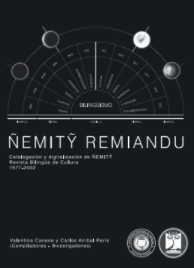Overcoming Psychological Barriers: Online Teaching as a Black Swan of Education
DOI:
https://doi.org/10.47133/NEMITYRA20222002A3Palabras clave:
psycholinguistics, black swan event, e-learning, lyrics training, gamificationResumen
The black swan event in education systems of the whole world has generated a surge in the demand for web based teaching and learning. Starting as inevitability, online education turned into an emergence of numerous educational platforms, tools and methods. The saying presuming that black swans did not exist-has become reinterpreted to rare events that are beyond the realm of normal. The general understanding that online education as a whole does not exist —has become reinterpreted to the most up-to-date and commonly used way of teaching. Getting used to an absolutely digital way of delivery is a long process, which requires supporting our learners throughout this journey of digitalization. This paper explores which lesson conducting patterns, such as various activities and games, can help overcome psychological barriers related to the lack of interpersonal communication and one-on-one support in online teaching. It also addresses how university students can benefit from the online delivery of ESL courses and examines the strategies that make the students more successful in a new normal. This paper raises questions how to best support English preparatory program university students in a way that they can take the most out of e-learning. This study was designed to analyze the psychological determinants of the learners’ behavior relevant to online learning. The number of psychological challenges that the students are facing in online medium of communication, and how these issues can be addressed. This study, based on the students being surveyed, focused on English Preparatory Program university students, who are currently combining faculty courses and English language course. The research study was conducted through the questionnaire and sent to the students via Google Forms. The students got open ended and Yes/No questions pertaining to the online environment, and structure of the course in terms of benefits, pitfalls and suggestions to take into consideration, when learning in a new reality. All the questions were answered anonymously.
Referencias
Fiori, M. (2021). Language Learning with Lyricstraining. https://fltmag.com/lyricstraining.
Lantolf, J. P. (2000). Introducing sociocultural theory. Sociocultural theory and second language learning, 1-26.
Lantolf, J. P., & Thorne, S. L. (2006). Sociocultural theory and the genesis of second language development: Oxford University Press.
Maftoon, P., & Shakouri, N. (2012). Psycholinguistic Approach to Second Language Acquisition. The International Journal of Language Learning and Applied Linguistics World (IJLLALW. Vol 1 (1); 1-9 ISSN: 5389-2100.
Scovel, T. (2002). “Psycholinguistics”, in Teaching English to Speakers of other Languages (Ed. By Carter, Ronald and Nunan, David. Cambridge: Cambridge University Press.
Taleb, N.N. (2008). “The Black Swan: The Impact of The Highly Improbable”: Penguin.
Vygotsky, L. (1978). Interaction between Learning and Development (pp. 79-91). In Mind in Society. (Trans. M. Cole). Cambridge, MA: Harvard University Press.
Werbach, K. and Hunter, D. (2012). For the Win: How Game Thinking Can Revolutionize Your Business. Philadelphia, PA: Wharton Digital Press.
Descargas
Publicado
Número
Sección
Licencia
Derechos de autor 2022 Oleksandra Halchenko; y Revista Ñemitỹrã

Esta obra está bajo una licencia internacional Creative Commons Atribución-NoComercial-SinDerivadas 4.0.










